Laboratory
The Cardiovascular Mechanobiology Laboratory is a 1,000 ft2 biomedical engineering laboratory designed for studying endothelial inflammation and response to fluid mechanical stimuli. The lab is well-equipped for conducting mammalian cell culture, chemical and molecular protocols, and for interfacing with core facilities and the laboratories of collaborating investigators.
Core Facilities
The Genome Center at UC Davis maintains core facilities in DNA technologies and Expression Analysis, Proteomics, Metabolomics and Bioinformatics. The Biomedical Engineering Department hosts a rapid prototyping facility, microfabrication facilities, and the Center for Molecular and Genomic Imaging.
Major Instruments and Technologies
Various technologies designed to expose cultured cells to flow/shear conditions:
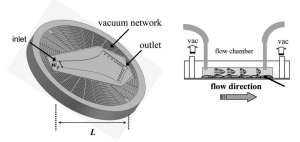 Microfluidics-based devices Microfluidics-based devices
–Parallel-plate flow chambers –A PDMS mold of a hele-shaw parallel plate flow chamber is shown above.
|
 –Cell shearing device: Based on the cone-and-plate viscometer concept, the device uses a micro-stepping motor to precisely control the cone rotation, allowing for the recapitulation of complex physiological shear waveforms in vitro. –Cell shearing device: Based on the cone-and-plate viscometer concept, the device uses a micro-stepping motor to precisely control the cone rotation, allowing for the recapitulation of complex physiological shear waveforms in vitro.
|
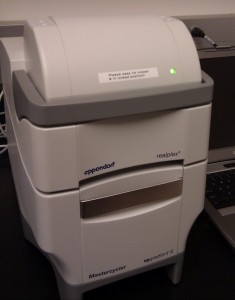 Eppendorf Mastercycler ep realplex real-time PCR system Eppendorf Mastercycler ep realplex real-time PCR system
|
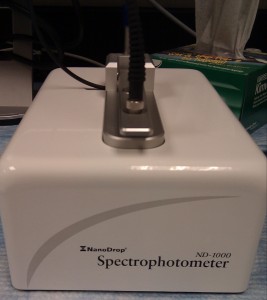 Nanodrop ND-1000 spectrophotometer |
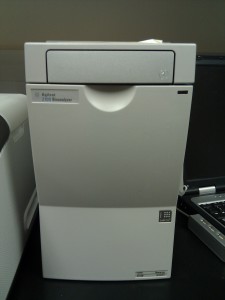 Agilent 2100 Bioanalyzer with electrophoresis and flow cytometry modules Agilent 2100 Bioanalyzer with electrophoresis and flow cytometry modules |
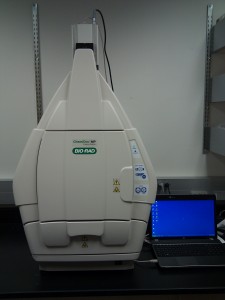 Bio-Rad ChemiDoc MP gel imaging system Bio-Rad ChemiDoc MP gel imaging system |
Bio-Tek Synergy HT plate reader
Nikon inverted and fluorescence microscopes
Optiplex GX620 computer workstation with software for the analysis of genomics data
Additional resources for microscopic imaging, microfabrication, and flow cytometry are available through collaborations with other department faculty.
Clinical Resources:
The UC Davis Medical Center and a renowned School of Veterinary Medicine contribute to a rich research environment. The Medical Center is home to the Clinical and Translational Science Center (CTSC), which is focused on enhancing the study of human health and disease, and bringing new treatments more rapidly to patients and communities. The CTSC fosters collaborative multidisciplinary research and provides a range of services to investigators including core facilities, a clinical research center, research design, informatics and regulatory support.
